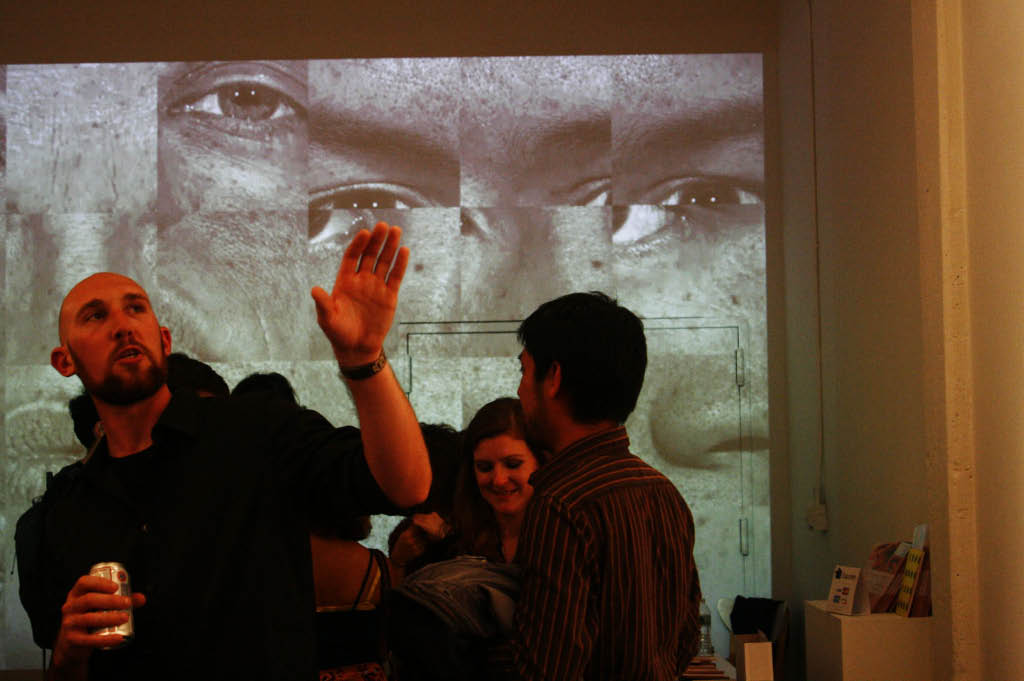The City of Philadelphia is promising to ship a public mobile application to supplement its non-emergency 311 call enter. Again.
“We’re absolutely going to have one,” said Managing Director Rich Negrin during a budget hearing last week, as first reported by the Daily News. Pledged by this summer, the tool would give citizens another pipeline to register complaints for things like potholes and dangerous sidewalks.
But haven’t we heard this before, Technically Philly asked Negrin, reminding him that last year was the second, major missed deadline on a project that has lingered for no fewer than two years?
“You got that wrong,” Negrin told Technically Philly. “We delivered an app last year for limited use by our PhillyRising team. Last year’s effort was limited to Blackberry because that is what we issue employees so that made sense.”
That much appears to be true. City Chief Innovation Officer Adel Ebeid confirms the August 2011 deployment of a private, internal Blackberry focused service — not a native application — that was shared across relevant city-issued devices. (Just two months late on that original internal goal).
The last eight months have been pure, sweet user feedback, says Ebeid, who took over in August from interim CTO Tommy Jones, who transitioned out of city government earlier this year. Why should anyone think this deadline is any different?
“I wanted a more functional, updated, faster, multi-platform solution, which is why we didn’t roll that out broadly and why we are taking our current approach,” said Negrin, the imposing former NFL lineman turned strategic politician.
An RFP that was sent out six weeks ago, the Daily News first reported, received a handful of responses, which have been narrowed to two, with a final decision expected by month’s end. With a soft deadline sometime in the summer — staff declined to give a firmer date — that would give a private firm at most three months to develop a tool that sounds a lot like SeeClickFix, the scaled, Connecticut-based company that connects citizens to city services.
Philly 311 was actively responding to complaints using that service as recently as last month, and the service seemed to play a role desired by some. Using that service had come at no cost to the city.
Still, even Councilman Bill Green, a frequent critic of the administration, noted in budget hearings that many big cities that have 311 programs also have mobile apps to create another source for resident concerns.
But why has it taken so long?
Collecting feedback sounds good, but politics likely play an unsurprising role.
In April 2010, former city CTO Allan Frank, who left following a deteriorating relationship with others in the administration, first boasted that a 311 app for the iPhone was being developed and would be released as soon as the following month. It wasn’t and six months later, he announced he was leaving. Frank declined to comment for this story.
That app was built, with the help of private, pro bono support, but was squashed from above amid other priorities and Frank’s ouster, says one official with knowledge of the project who declined to speak on the record for fear of retribution.
Last year during Philly Tech Week, Negrin pledged a public launch of a version of the application by that summer. It wasn’t.
And here we are again.
Negrin told the Daily News that this new version of the project would cost the city less than $20,000, a relatively small sum that might make sense when looking at out-of-pocket expenses but one that is hard to figure when taking into account more than two years of staff time, various starts and stops and apparent earlier project work.
It’s at this point that any number of good government technologists, hobbyist hackers and #opengov enthusiasts point out to Technically Philly that if the City of Philadelphia would focus more on workflow and process to offer stable, scalable, backend data sources and APIs, the market might likely offer sleeker, better, more flexible and, surely, more quickly updated front-end solutions.
But, with two years gone, a new deadline and a seemingly more stable relationship between Negrin and Ebeid, it seems likely that this time, the 311 app will ship. If not on time, then, well, sometime.
And Ebeid speaks as if it’s a near certainty that is following an altogether uninterrupted line of thinking.
“Our goal was and is to be more inclusive of the citizens that want to report into 311 and develop something that they could use on more smartphone devices — iPhone, Android, etc. — and not just Blackberry,” Ebeid said. “The difference is that we now have valuable feedback from the pilot and are incorporating that feedback to develop a true multi-platform, mobile app.”







